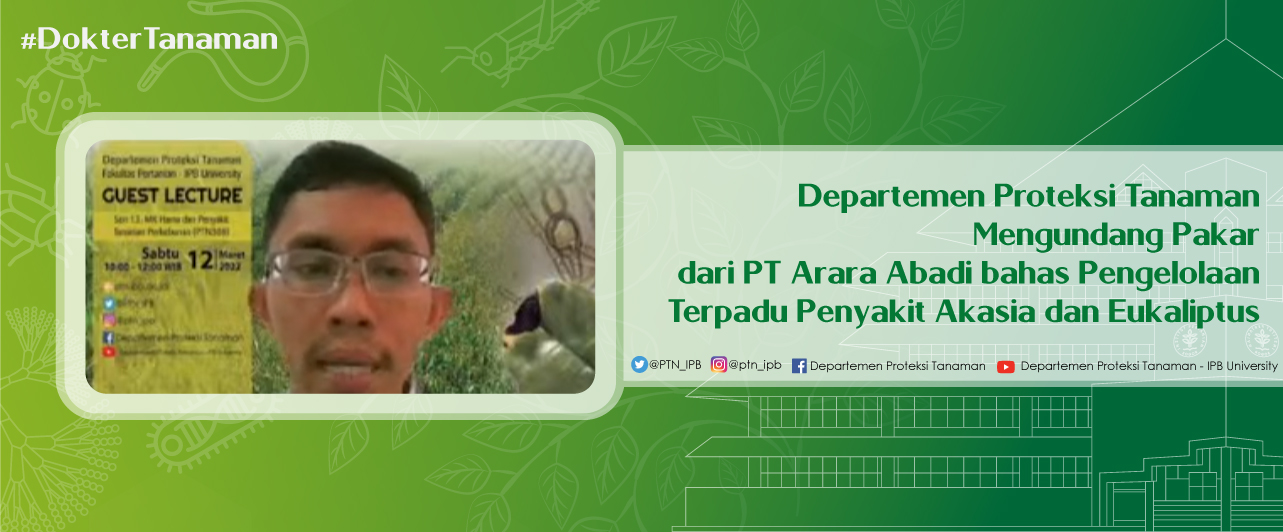
Department of Plant Protection Invites Experts from PT Arara Abadi to discuss Integrated Management of Acacia and Eucalyptus Diseases
Department of Plant Protection, Faculty of Agriculture, IPB Supporting the enrichment of learning experiences for students in digital transformation in the COVID-19 era, IPB carries an educational format that provides a forum for interaction for students and professionals through discussion and interpersonal competence in the Guest Lecture Series program.
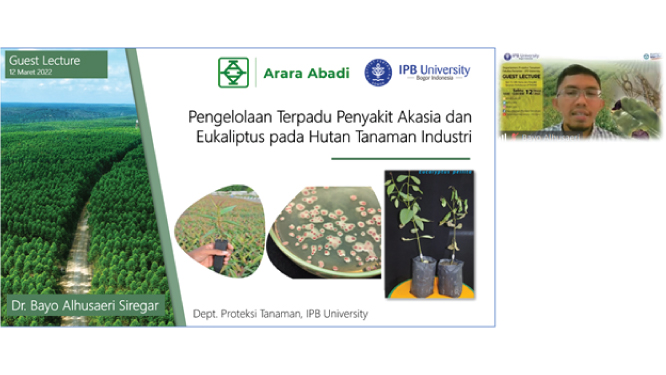
The 13th Guest Lecture Series held on Saturday, March 12, 2022, invited Dr. Bayo Alhusaeri Siregar, SP. M.Si from PT. Arara Abadi Riau to present material with the theme “Integrated Management of Acacia and Eucalyptus Diseases in Industrial Plantation Forests”. This activity was carried out through a Zoom Meeting which was attended by Lecturers of the Plant Protection Department and students from various universities as well as several private companies.
Industrial Plantation Forest (HTI) according to Government Regulation No. 7 of 1990 is a plantation forest built in order to increase the potential and quality of production forests by applying intensive silviculture to meet the needs of industrial raw materials for forest products.
This HTI has a very large area, so there is a threat to the productivity of HTI. One of them is the presence of plant diseases. The most common diseases are bacterial wilt (Ralstonia pseudosolanacearum), root/liver rot (Ganoderma philpii), stem rot (Ceratocystis spp.), and Fusarium wilt disease.
Integrated management carried out by PT. Arara Abadi Riau is (1) Creating resistant clones/varieties through artificial inoculation in the Growth Chamber; (2) Making Biocontrol Agents (Endophytic Fungus, Basidiomycetes and Endophytic Bacteria); (3) Carrying out other controls, namely Biosecurity in Clonal Garden and eradication; (4) Disease monitoring using technology (making an integrated Android-based application and utilizing drones to facilitate monitoring and obtain data on areas affected by the disease).
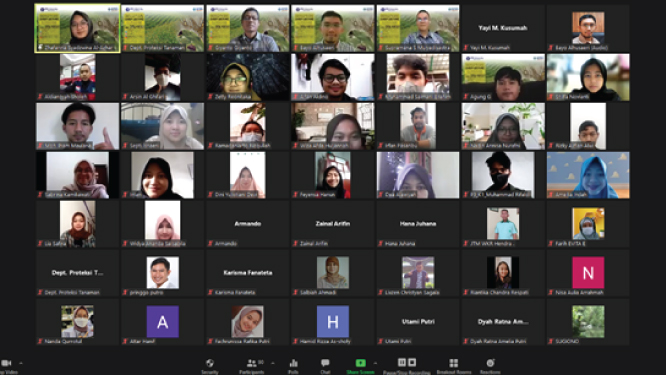
Based on research and looking at conditions in the field, the threat of disease in acacia and eucalyptus plantations is real and detrimental. The application of IPM in HTI is important as a mitigation measure against the threat of plant diseases. The use of resistant plants and biological agents in the core of IPM in HTI, while other controls increase IPM efficiency. For mechanization, digitalization and automation need to be developed to improve the efficiency of disease management.
For complete information, please watch the Guest Lecture 13 video below:


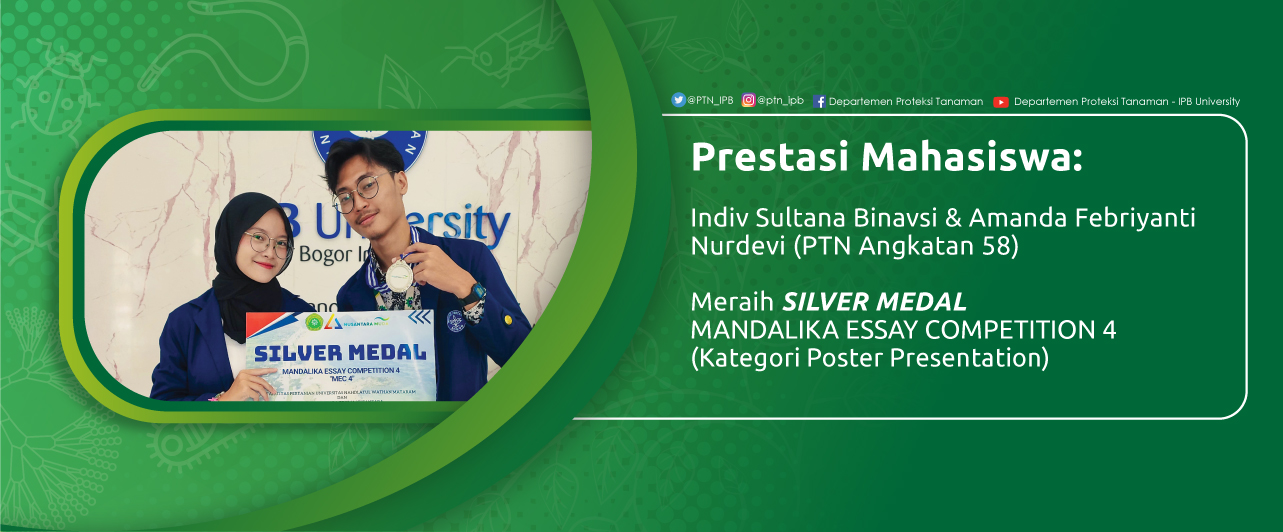
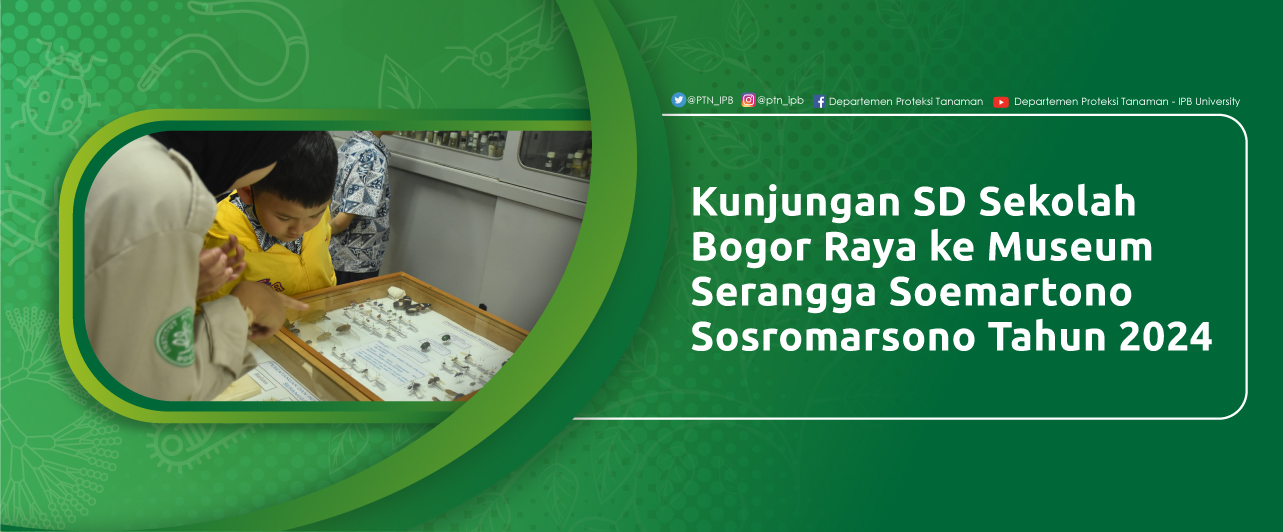
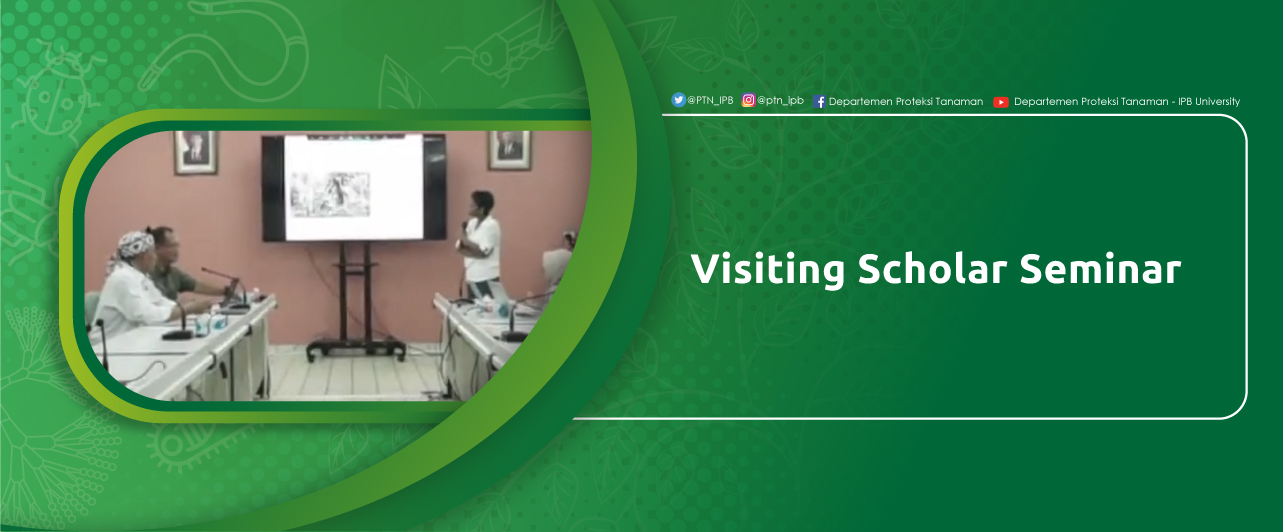
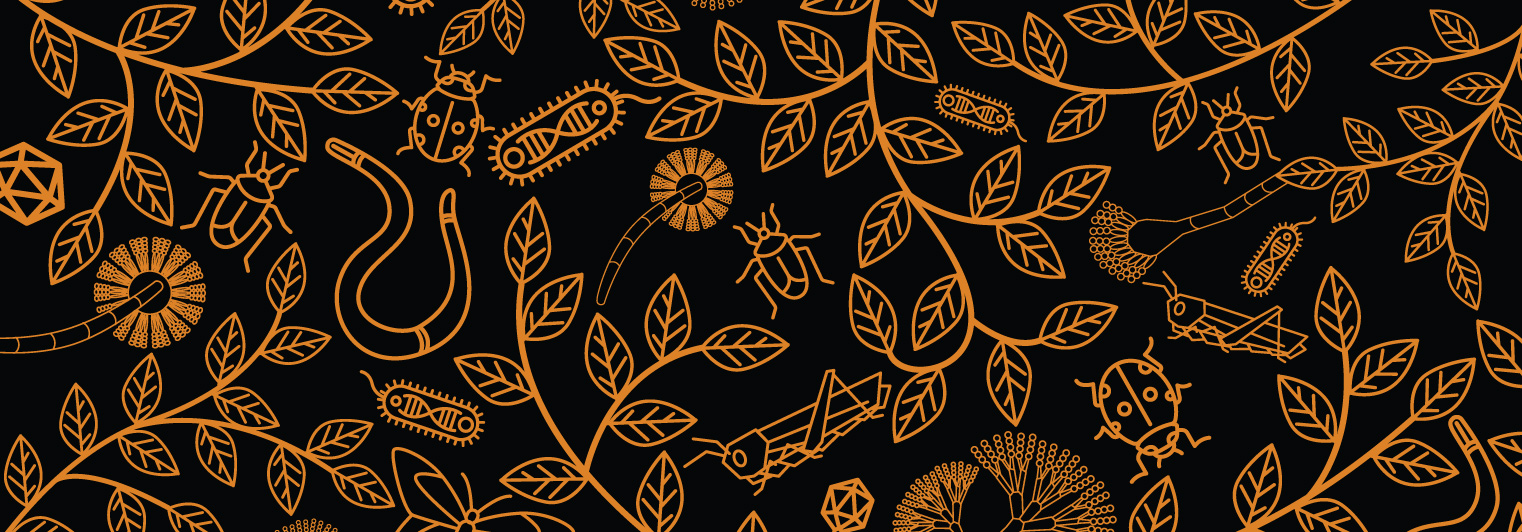
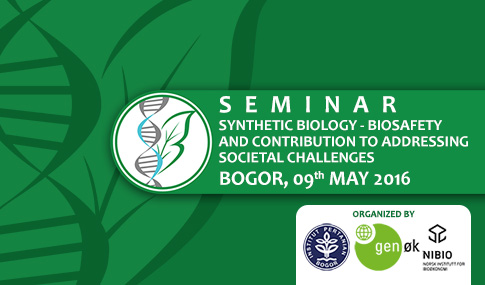
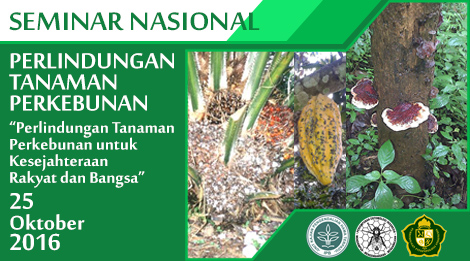
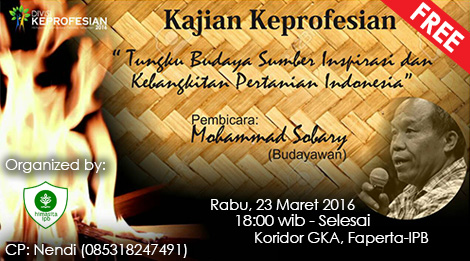
.jpg)